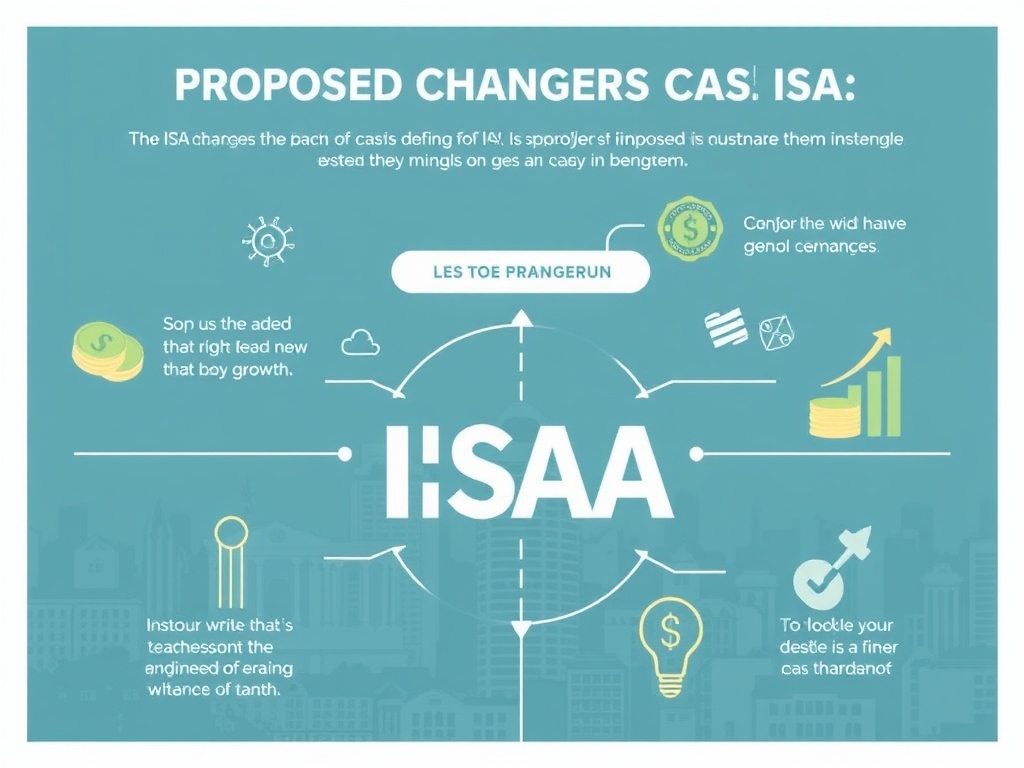Chancellor Rachel Reeves Considers Changes to Cash ISAs

Chancellor Rachel Reeves has announced that she is contemplating new restrictions on Cash ISAs to encourage savers to direct their funds towards more productive yet riskier investments. During a recent interview, Reeves expressed her commitment to fostering a culture of retail investing in the UK, similar to what is seen in the United States. This initiative aims to help savers achieve better returns and contribute to economic growth.
Currently, individuals can invest up to £20,000 annually into either Cash ISAs or Stocks and Shares ISAs, enjoying tax-free returns on their investments. While Stocks and Shares ISAs have the potential to yield higher long-term returns, they also carry significant short-term risks, as the value of investments can fluctuate.
The i Paper reported last week that the Treasury is exploring the possibility of reducing the maximum annual contribution to Cash ISAs, with some proposals suggesting a limit as low as £4,000. When asked about this potential change, Reeves stated, “It’s crucial that we support individuals in saving to fulfill their aspirations. Currently, there is a £20,000 limit on contributions to either cash or equities, but we want to strike the right balance.”
Reeves continued, “My goal is to cultivate a culture of retail investing in the UK, enabling savers to earn better returns and contribute to our ambition of economic growth, creating quality jobs across the nation.” However, the Treasury has refrained from commenting on a report from the Daily Mail that claimed the Chancellor assured companies in a recent meeting that Cash ISAs would not be entirely abolished.
Ministers have expressed ongoing concern about the vast sums of money sitting idle in bank accounts, rather than being invested in productive enterprises. Shaun Moore, a tax and financial planning expert at Quilter, remarked, “Imposing a £4,000 cap on Cash ISAs would represent a significant change, but it’s not without precedent. The ISA framework once operated with distinct limits for cash and stocks before being unified into the current structure. Reverting to a similar model could encourage more individuals to invest, historically leading to better long-term returns and supporting economic growth.”
Tom Selby from AJ Bell added, “We believe the government should focus on simplifying ISA regulations and encouraging long-term investing instead of limiting options. While it’s commendable for the government to seek growth and increased investment in the UK, any future ISA framework must accommodate a reasonable portion of cash investments. Reducing Cash ISA limits may seem appealing, but it doesn’t guarantee that the funds would be redirected to long-term investments.”
Sarah Coles, head of personal finance at Hargreaves Lansdown, commented, “The idea of lowering the Cash ISA limit to stimulate more investment feels like using a square peg for a round hole. A significant part of the problem is that many individuals lack the confidence to invest. The ongoing Advice Guidance Boundary Review aims to explore better ways to guide individuals towards sound financial decisions without requiring paid advice. This initiative would provide targeted support and encourage people to transition their long-term savings into investments, proving more effective than merely adjusting ISA limits. If the ISA allowance were reduced—and that’s a considerable if—the likely outcome would be diligent savers facing increased tax exposure.”
Jason Hollands, managing director of Bestinvest by Evelyn Partners, stated, “Capping Cash ISAs relative to the current limit is a credible concern. Reducing choices and flexibility would be a step backward in my opinion.”
Pros and Cons of Limiting Tax Breaks on Cash ISAs
Cash ISAs are a favored financial product, allowing individuals to earn interest on their savings without incurring tax liabilities, currently with a maximum annual contribution of £20,000. More than 18 million people hold Cash ISAs, and 2024 is projected to be a record year for this market, with savers depositing over £49.8 billion—up from the previous record of £47.1 billion in 2023, according to the Bank of England. Stocks and Shares ISAs also come with a £20,000 annual limit, enabling holders to invest in a variety of assets, including shares, funds, and bonds.
Pros of Reducing or Adjusting Cash ISA Limits:
- One of the primary reasons for advocating the scaling back of Cash ISA tax breaks is to stimulate investment in stocks. This could lead to a higher number of individuals investing in Stocks and Shares ISAs, which typically offer superior returns over the long term.
- This shift would align with Chancellor Reeves’s growth strategy, bolstering the equity market in the City.
- Current government statistics reveal that nearly 60% of ISA value is held in stocks, compared to 40% in cash. Encouraging more individuals to opt for Stocks and Shares ISAs could foster greater financial literacy regarding investments and potentially enhance their returns, especially as these investments often outperform inflation.
- A thriving stock market, fueled by increased participation, could boost confidence and serve as a cornerstone for Labour’s economic growth agenda.
Cons of Reducing or Adjusting Cash ISA Limits:
- Many individuals may not fully grasp or feel confident in investing. Cash ISAs offer a straightforward mechanism for saving, allowing easy access to funds without the worry of market fluctuations.
- If individuals are unaware of investment risks, they may suffer unexpected losses. Many prefer the perceived safety and simplicity of Cash ISAs, as they allow for quick withdrawals, particularly in emergencies. Removing this option could lead to stress and confusion regarding fund management.
- Cash ISAs are exempt from the personal savings allowance, which permits basic rate taxpayers to earn up to £1,000 in interest tax-free annually, and higher-rate taxpayers to earn up to £500. If individuals lack the confidence to open a Stocks and Shares ISA, they may incur higher taxes in other accounts.
- Withdrawal fees may apply to Stocks and Shares ISAs, whereas there are generally no fees associated with withdrawing from Cash ISAs, unless taking money from a fixed-term account prematurely.




